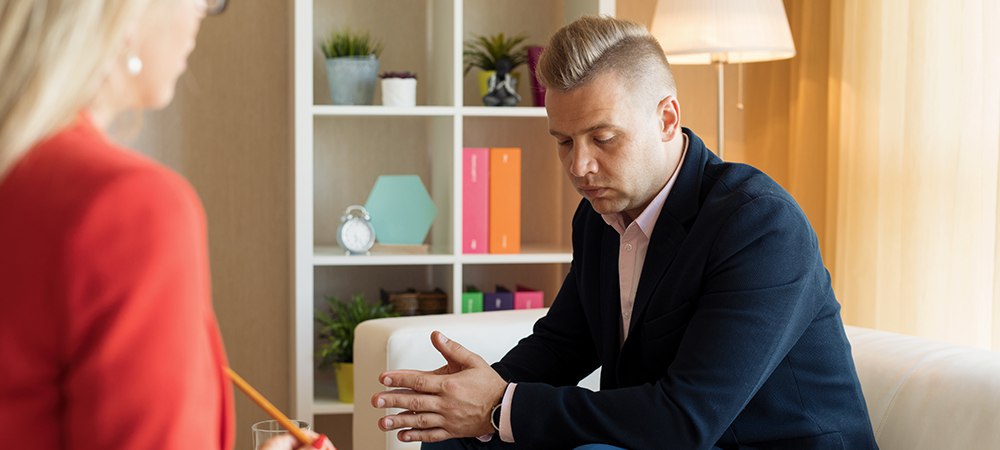As our understanding of addiction grows, so do the available treatment options. Few rehab facilities these days follow a one-size-fits-all approach to drug and alcohol addiction treatment: even publicly funded centres on a budget make some allowance for differing needs and circumstances.
There is also an almost universal agreement that addiction treatment is needed in the first place. We have moved on from the days when people with addictions went through detox and were sent home with instructions to never use the substance again.
Similarly, we are no longer stuck on the idea of talk therapy being the only mode of addiction treatment. Rehab centres typically use a multifaceted approach that combines therapy, life coaching, yoga, creative pursuits, exercise and more. The more customizable an addiction treatment program is, the better the long-term outcomes are.
But are there any commonalities? In this world of individually tailored addiction treatment plans, are there any elements that should be applied to everyone?
A Universal Treatment Goal
No matter who you are or what circumstances led to your addiction, there is one singular goal of participating in a drug and alcohol rehab program: to address the root causes of the addiction and develop the skills and tools to cope with the challenges of life without turning to substance use.
This goal looks different for everyone. People start using drugs and alcohol for all kinds of reasons, such as spousal abuse, trauma from serving in the military, schoolyard bullying, or unrelenting pressure to succeed in a corporate environment.
Delving into these issues is key to long-term recovery, and in most cases, this involves therapy.
Defining Therapy
For most people, the word “therapy” conjures up a mental picture of a patient sitting in an office talking to a therapist. But therapy can take many forms. In fact, Britannica (famed for the encyclopedia) defines psychotherapy as “any form of treatment for psychological, emotional, or behaviour disorders in which a trained person establishes a relationship with one or several patients for the purpose of modifying or removing existing symptoms and promoting personality growth”.
By this definition, many things can qualify as “therapy”, so individuals who are not willing or able to relive their traumas by verbalizing them can heal in ways that are more suited to them.
Individual Therapy
Talk therapy is an old favourite, and it is highly effective for many people. There are several subclasses of talk therapy, such as cognitive behavioural therapy (CBT) and dialectical behaviour therapy (DBT). Many people find that they can only work through their traumas if they talk about them, and individual talk therapy provides a safe, confidential environment for doing that.
Group Therapy

Humans instinctively gravitate to other humans who have common experiences, interests, or challenges. We feel validated when we are among people who “get it”, who have lived through some of the same things we have. Group therapy allows people with addictions to share their experiences, talk about what they have learned, and support one another through the process of recovery.
Family Therapy
Some addictions arise from situations of conflict with loved ones. All people involved – the person with the addiction and their close friends and family members – may benefit from family therapy. The goal is to improve communication and conflict resolution skills.
Creative Therapies
Therapy using art, music, and dance can be an effective supplement to talk therapy, or it can be used as the primary form of therapy for those who are not candidates for talk therapy. Creativity is a great way for individuals to express themselves and communicate difficult emotions. These forms of therapy are relatively recent additions to addiction treatment.
Traditional Healing Practices
No discussion about addiction treatment is complete without a look at the traditional healing methods used in some cultures. It is important that addiction treatment acknowledge and respect the individual’s cultural and spiritual needs. Traditions like sweat lodge ceremonies, storytelling, land-based activities, and traditional teachings should be available to people from Indigenous communities.
Therapy Comes In Many Forms
We need to overturn the idea that “therapy” consists of lying on a couch talking to a relative stranger. The therapies described above are just a small part of an ever-growing, ever-evolving list. The key is to determine what kind of therapy works for you. Sometimes it will be just done, but more commonly, a combination of therapeutic modalities will be most effective.
It is important to remember that while we usually associate therapy with mental health, it can also apply to physical health. If you suffer from an addiction to painkillers, you may need an alternative means of managing the pain for which the painkillers were prescribed, such as a different medication, physiotherapy, or both. If your addiction is paired with an eating disorder, you may benefit from therapy that incorporates exercise and nutrition coaching.

The Importance Of Flexibility
As you move through your addiction recovery, you will change and grow. As this happens, the combination of therapies that worked for you in the beginning may need to be adjusted. A good addiction treatment plan allows for this. There should be assessments at regular intervals, during which your progress is monitored and your treatment altered as needed.
Therapy After Rehab
Addiction recovery is an ongoing process that continues long after you have left your rehab facility. As part of your discharge from rehab, you should be referred to therapists and treatment providers in your area who can help you continue the work you have started. With technological advances, many of these therapies can be conducted online.
Getting Started With Addiction Treatment
Talking about the different kinds of therapy is all well and good, but how do you get started in a facility that provides access to all of this? Fortunately, you do not have to look far. Thousand Islands Rehab Centre is located in a beautiful setting just two hours out of Toronto. We will put together a customized addiction treatment program that considers your unique needs and circumstances, and that incorporate the therapeutic methods that are right for you. Your recovery journey can start right now with a single phone call.
